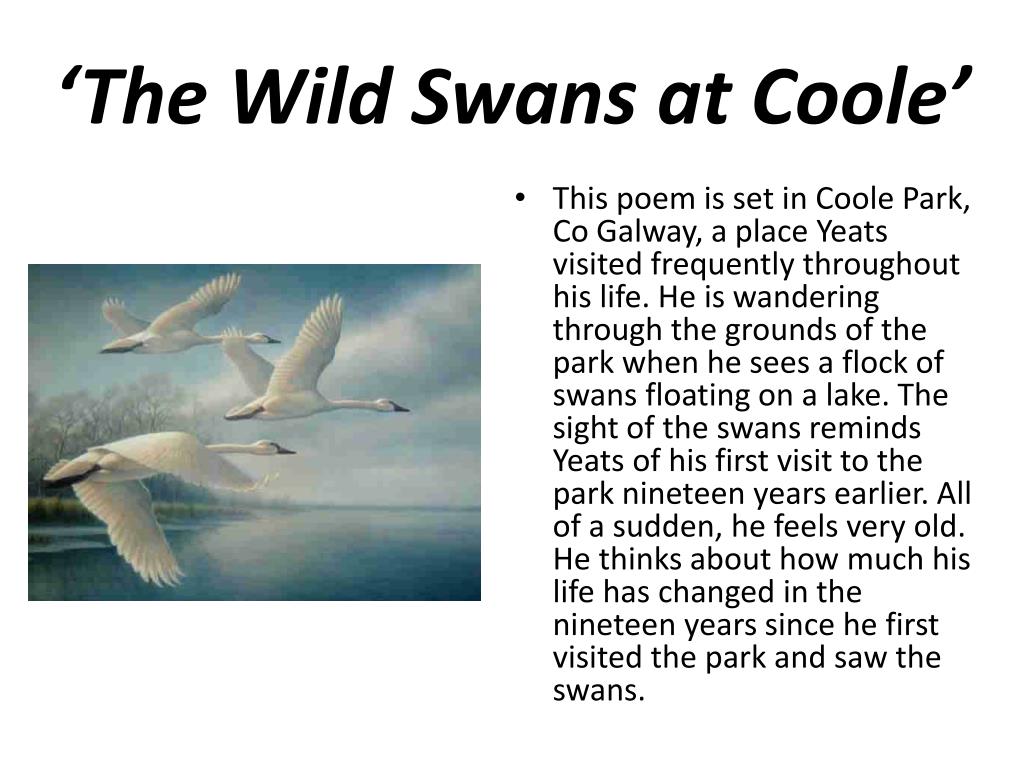

Some critics propose that the poem discusses the probable welding of knowledge into power through the body (Howes 120). In the story, Zeus transforms himself into a swan, descends to earth, and rapes Leda, a beautiful woman who is imprisoned in a cellar by her own father. "Leda and the Swan" appears to recount the erotic story of Zeus and Leda in Greek mythology. For example, the binary operation of masculine hegemony and female subordination underlying Irish cultural nationalism emerges repeatedly in Yeats's poems, such as "No Second Troy" and "A Prayer for My Daughter." Yeats's time-honored poem "Leda and the Swan" helps explain this negligence, or blindness to oneself, that is somehow characteristic of the most heavily patriarchal writing. Patriarchal domination has infiltrated all aspects of life in the disguise of a pure, elevated, artistic outlook, so that unsuspecting readers often fail to notice it. Yeatsįor centuries, Ireland's traditional bards glorified women through idealized woman-figures that misrecognized and misrepresented actual women. Keywords: women, power, knowledge, "Leda and the Swan," W.B. Through a deconstructive reading, this paper argues that the mythological Leda in Yeats's text has within her womb a potentially violent, disruptive, and deconstructive force. However, in generating Leda's daughters, Helen and Clytemnestra, Zeus is transferring a considerable degree of power to Leda.

Yeats's well-known poem "Leda and the Swan" seems to be reinforcing the traditional gender-myth (gender-stereotype) of aggressive male/passive female.


 0 kommentar(er)
0 kommentar(er)
